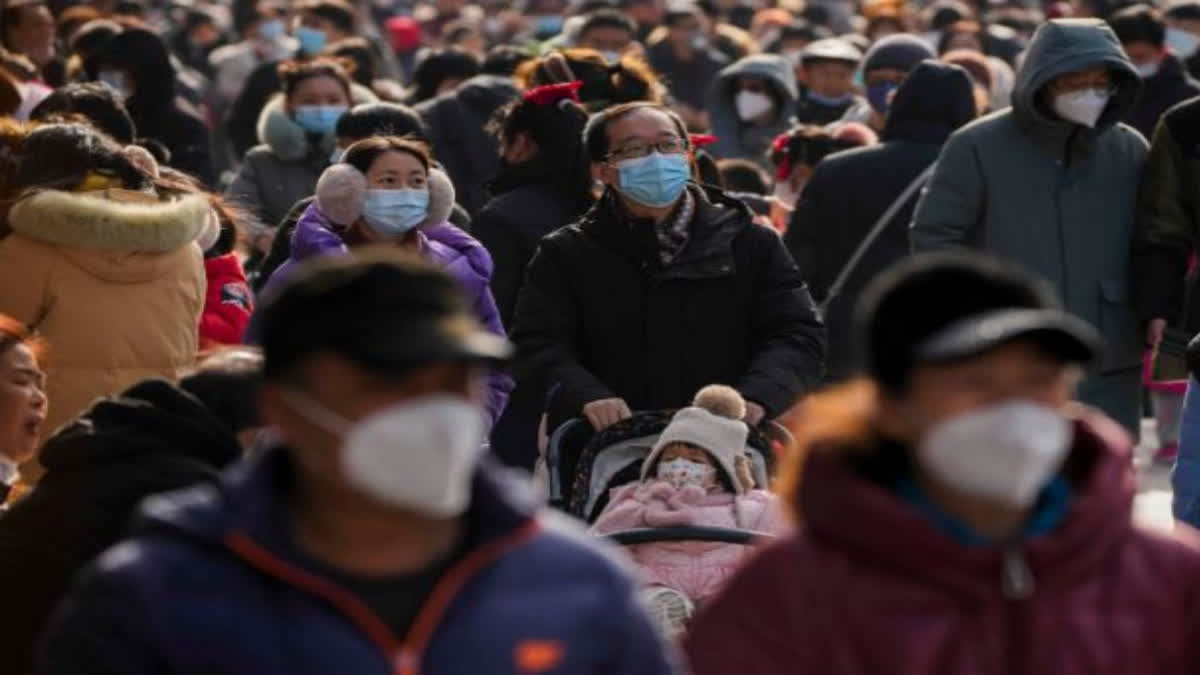Beijing:China’s prospects for 2024 look uncertain, as a year that opened free of Covid-19 lockdowns winds down without the dream of robust recovery for the world’s No. 2 economy.
The wars in Gaza and Ukraine are straining China’s ties with the West. A U.S.-China leaders’ summit helped get relations back on track, but also clearly defined the stark divide between the two global powers. To counter a U.S.-led world order, China is pushing alternative visions for global security and development whose prospects depend partly on restoring its economic vitality.
Pandemic-related restrictions ended, but China still faces long-term, fundamental challenges: a falling birthrate and ageing population — India surpassed it as the world’s largest country in April — and its rivalry with the United States over technology, Taiwan and control of the high seas.
"This year started on a such an optimistic note,” said Wang Xiangwei, a China expert and former editor-in-chief of the South China Morning Post newspaper. “And now (as) we are ending 2023, I think people are getting more worried about what ... will be in store” for next year. As China’s mask and testing requirements faded, for the first time in three years crowds thronged temples and parks last January for the Lunar New Year.
“Life is returning to normal,” said Zhang Yiwen, visiting a historic Beijing district bustling with tourists. “I look forward to seeing how the economy grows in the new year and what the country can accomplish in the international market.”
Hopes for warming ties with Washington were dashed with the shooting down of an off-course Chinese balloon that drifted over the United States in February. Secretary of State Antony Blinken cancelled a trip to Beijing. A month later during the annual session of the largely ceremonial legislature, Chinese leader Xi Jinping accused the U.S. of seeking to isolate and “contain” China.
But China’s re-opening brought a parade of foreign leaders to Beijing as it strengthened links with the Mideast and other developing regions and showed support for Russia, and set about mending relations with Europe, the U.S. and Australia. China raised its international profile when Saudi Arabia and Iran reached an agreement in Beijing to reestablish diplomatic relations. Shi Shusi, a regular analyst on Chinese TV, highlighted China’s capacity to play a diplomatic role in the developing world.
“China has traditional friendships with these countries,” Shi said. “If we provide some assistance and strengthen cooperation ... it seems to be a realistic solution for China to participate in the game of great powers and in global governance.”
During the National Congress, Premier Li Keqiang announced an economic growth target of around 5% for the year. But Li, who died in October, was on his way out, replaced by close associates of Xi as he further consolidated his hold on power. China’s economic rebound was short-lived, though the Shanghai auto show showcased one gleaming bright spot: electric vehicles.
Exports of EVs have soared, to the extent that by September, the European Union launched a trade investigation into Chinese subsides to EV makers. “The EV market is getting better year by year, even though the overall economy is not promising,” said Li Jing, a salesperson at a small electric car dealer in Wuwei, a city of 1.2 million people in eastern China’s Anhui province. Li said his pay remained steady through the pandemic. Still, he was putting off plans to buy an apartment, expecting housing prices to fall amid a real estate crisis that has many Chinese cutting back on spending, hobbling efforts to tap consumer demand to drive economic growth. Blinken made his balloon-delayed trip to Beijing, followed by visits by U.S. Treasury Secretary Janet Yellen, climate envoy John Kerry and then Commerce Secretary Gina Raimondo..Meanwhile, the economy was slowing as growing numbers of property developers defaulted on debts, caught short in a crackdown on excessive borrowing that began in 2020 and has hamstrung the entire industry.
The jobless rate among young Chinese surged to about one-in-five, leading the government to stop publishing that data. “Life hasn’t returned to how it was before the pandemic,” said Liu Qingyu, a young worker in Shanghai’s financial sector who was hoping for more opportunities but instead is fretting over layoffs at her company. When the Zhongzhi Enterprise Group missed payments to investors, worries deepened that the real estate meltdown could spread into a financial crisis. The government began loosening restrictions on lending for home purchases and stepped up spending on construction, though housing prices kept falling. “I think in July, the Chinese leadership realized that the economy ... was in more serious trouble than (they had) expected,” Wang said.
